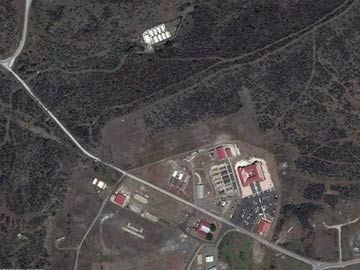A Communist Party-backed newspaper in China is urging that country's leadership to obtain more information from the former CIA employee who leaked information about the U.S. surveillance programs before fleeing to Hong Kong.
The Global Times newspaper said in an editorial Friday that Edward Snowden should not be sent back to the U.S. because his revelations about secret American surveillance programs concern China's national interest.
The newspaper said that the Chinese government should not only consider Beijing's relations with the United States but also domestic public opinion, which the paper says would be unhappy if Snowden were sent back.
The Global Times said in the editorial, which ran in the paper's Chinese- and English-language editions, that Snowden could offer intelligence that would help China update its understanding of cyberspace and improve its position in negotiations with Washington.
"Snowden took the initiative to expose the U.S. government's attacks on Hong Kong and the mainland's Internet networks. This concerns China's national interest," the commentary said. "Maybe he has more evidence. The Chinese government should let him speak out and according to whether the information is public, use it as evidence to negotiate with the United States openly or in private."
The paper said that the Chinese government should not only consider Beijing's relations with the United States but also the opinion of its domestic public, which the paper said would be unhappy if Snowden were sent back.
"We have realized the United States' aggressiveness in cyberspace, we have realized that nine Internet companies have assisted the U.S. government in intelligence outsourcing," said the paper known for a nationalist stance. "We have realized their hypocrisy in saying one thing and doing another, and we have realized their ruthlessness in doing what they please with no regard for other people."
"China is a rising power, and it deserves corresponding respect from the United States," it said.
Snowden alleged in an interview with the South China Morning Post newspaper Thursday that the NSA has been monitoring the Chinese University of Hong Kong and public officials and citizens in the city.
Snowden told the paper he believes there have been more than 61,000 NSA hacking operations globally.
The 29-year-old reportedly also told the newspaper his plans for the immediate future, steps he claims the U.S. has taken since he broke his cover in Hong Kong, fears for his family as well as explosive details on U.S. surveillance targets.
On Thursday, Ministry of Foreign Affairs spokeswoman Hua Chungying said China is a "major victim" of cyberattacks but did not lay blame.
Snowden is behind one of the biggest intelligence leaks in American history. The former Booz Allen Hamilton contractor who worked at the National Security Agency, hopped a flight to Asia on May 20 and has remained on the lam ever since.
The Associated Press reported Friday that the British government issued an alert to airlines around the world, urging them not to allow Snowden to board flights to the United Kingdom.
The alert, dated Monday on a Home Office letterhead, said carriers should deny Snowden boarding because "the individual is highly likely to be refused entry to the UK."
The Associated Press saw a photograph of the document taken Friday at a Thai airport. A British diplomat confirmed that the document was genuine and was sent out to airlines around the world.
In what is likely his final appearance as FBI director before the House Judiciary Committee, Mueller said Thursday that Snowden is the subject of an ongoing criminal investigation.
In his three hours of testimony, Mueller defended the government's collection of millions of U.S. phone records, emails and other information as vital to the nation's national security.
"Every time that we have a leak like this — and if you follow it up and you look at the intelligence afterwards" — the terrorists "are looking at the ways around it," Mueller said.









![NEOCASTRISMO [Hacer click en la imagen]](http://4.bp.blogspot.com/_5jy0SZhMlaU/SsuPVOlq2NI/AAAAAAAAH1E/4xt2Bwd2reE/S150/ppo+saturno+jugando+con+sus+hijos.jpg)





